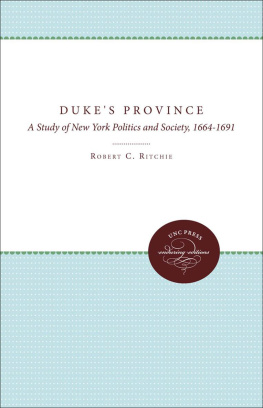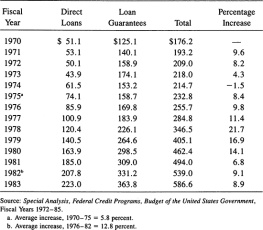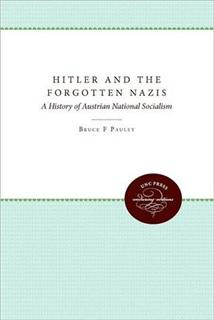PREFACE
On the eve of Franklin D. Roosevelts New Deal, Erskine Caldwell introduced Jeeter Lester to the American people. Jeeter was a poor sharecropper, living with his wife and son in a shack on land that had once been part of his grandfathers rich plantation in the west-central area of Georgia. Taxes, delinquent debts, poor management, bondage to cotton culture, and soil erosion had, over the years, pared his inheritance to a portion of land that was too exhausted to produce a crop, and by World War I the remainder of the Lester land was lost through foreclosure.
Jeeter and his family were permitted to occupy one of the old shacks and to work a few acres of land on a share basis, but year after year they sank deeper into hopeless poverty. Family and friends urged the Lesters to leave the land and to seek work in a cotton mill in Augusta, but Jeeter stubbornly refused to abandon his faith in Providence:1
God is a wise old somebody. You cant fool Him! He takes care of little details us humans never stop to think about. Thats why I aint leaving the land and going to Augusta to live in a durn cotton mill. Some of these days Hell bust loose with a heap of bounty and all us poor folks will have all we want to eat and clothe us with. Hell put a stop to it some of these days and make the rich give back all theyve took from us poor folks.
Never did it occur to Jeeter Lester and his kind that their deliverance might lie not only in the hands of Providence, but also in the State and in themselves.
Later in the decade, after many Jeeter Lesters had languished on many Tobacco Roads, John Steinbeck chronicled the exodus of the Joad family from Oklahoma to the promised land of California. They were cheated by tradesmen along Highway 66, harassed by border guards at state boundaries, and on arrival were burned out of their makeshift camp by police deputies. One dark night the Joads wandered into Weedpatch Camp, a government refuge for migratory farm workers, where they found clean beds, indoor privies, food, friendship, and hope.
Oh! Praise God, whispered Ma Joad.
God Almighty, I cant hardly believe it! pronounced Tom.
Their praises were addressed to Providence, but were intended for Washington. Here, they believed, for the first time in their lives, was hard visible proof that their government, whatever and wherever it was, really cared about them and the hundreds of thousands of people like themlandless, homeless, penniless victims of a fickle climate, an unstable economy, and a pernicious way of life. Between the Lesters of Georgia and the Joads of Oklahoma, a profound change of spirit had come upon the land.2
The great revolution of the twentieth century, not only in the United States but also in the emerging nations abroad, is the kindling of an extravagant hope that the human condition of man can and should be improved, through the harnessing of the power, resources, and machinery of government, not in some distant millennium, but during the lifetime of those now living. It is what Adlai Stevenson prophetically described as the revolution of rising expectations.
The effective response of modern governments to this enormous challenge depends not only on the dreaming of dreams and the preaching of hope, but also on the capacity to convert the pictures in mens heads into the realities in their lives. Goodness by itself is not enough, wrote Aristotle, and therefore, There must also be a capacity for being active in doing good.3 The Farm Security Administration in the America of the Roosevelt era represented an historic attempt to preach hope to the Lesters and Joads of this country, and to exploit the promise, the power, and the possibilities of politics in securing salvation from the human suffering, social injustice, and economic waste of chronic poverty. In many ways, the rise and decline of the Farm Security Administration sheds some light on the strengths and weaknesses of the American people, of their political system, and of democracy itself.
S.B.
Fullerton, Calif.
December, 1967
Notes
1. Erskine Caldwell, Tobacco Road, in Three by Caldwell (Boston, Mass.: Little, Brown, 1960), pp. 13, 2930.
2. John Steinbeck, The Grapes of Wrath (New York: Viking, 1939), pp. 390, 393.
3. Aristotle, Politics, Ernest Barker, trans., The Politics of Aristotle (Oxford: Clarendon Press, 1946), p. 1325b.
ACKNOWLEDGMENTS
In large things and small, a great many people have contributed to this study. I owe a special debt of gratitude to the following: to Paul H. Appleby, Roscoe C. Martin, and Alexander Heard for igniting the spark; to Will W. Alexander, C. B. Baldwin, Robert W. Hudgens, and Paul V. Maris for furnishing both the grit and the grain; and to Stephen K. Bailey, Gladys L. Baker, Gordon W. Blackwell, Philip S. Brown, Frederic N. Cleaveland, O. B. Conoway, Charles S. Hyneman, Katharine Jocher, Howard W. Odum, E. E. Schattschneider, Frank Tannenbaum, and York Willbern for their faith and encouragement; and to Aaron Fineberg for providing the opportunity. And, for helping me to carry my burdens during the last stages of this work, I am grateful to my friend and colleague, Ivar L. Richardson.
Finally, without the cooperation of the people listed below, who granted the author interviews, as indicated, this study would have been impossible:
| WILL W. ALEXANDER | Nov. 2, 23, 1951; Feb. 2, May 9, 1952. |
| ALLISON ALLEN | Mar. 27, 1952. |
| PAUL H. APPLEBY | Jan. 9, 10, Feb. 15, July 18, 1952. |
| C. B. BALDWIN | Dec. 28, 1951; Apr. 10, 16, 1963; ? 16, 1966. |
| JOHN A. BAKER | Dec. 5, 1951. |
| LOUIS H. BEAN | Apr. 18, 1952. |
| EARL F. BELL | Jan. 11, 1952. |
| HOWARD BERTSCH | Dec. 7, I951. |
| PHILIP S. BROWN | Dec. 4, 1951; July 15, 1952; Nov. ?, 1966. |
| JOHN FISCHER | Nov. 16, 1961. |
| JONATHAN GARST | Jan. 21, 1952. |
| JOHN M. GAUS | Apr. 15, 1952. |
| CHARLES M. HARDIN | Apr. 2, 1955. |
| BROOKS HAYS | Dec. 13, 1951. |
| RALPH W. HOLLENBERG | Dec. 5, 1951. |
| ROBERT W. HUDGENS | Jan. 16, 1952; Mar. 7, 1963; Apr. ?, 1961. |
| GARDNER JACKSON | Apr. 19, 1952. |
| MARVIN JONES | Dec. 6, 1951; Apr. 2, 1952 |








